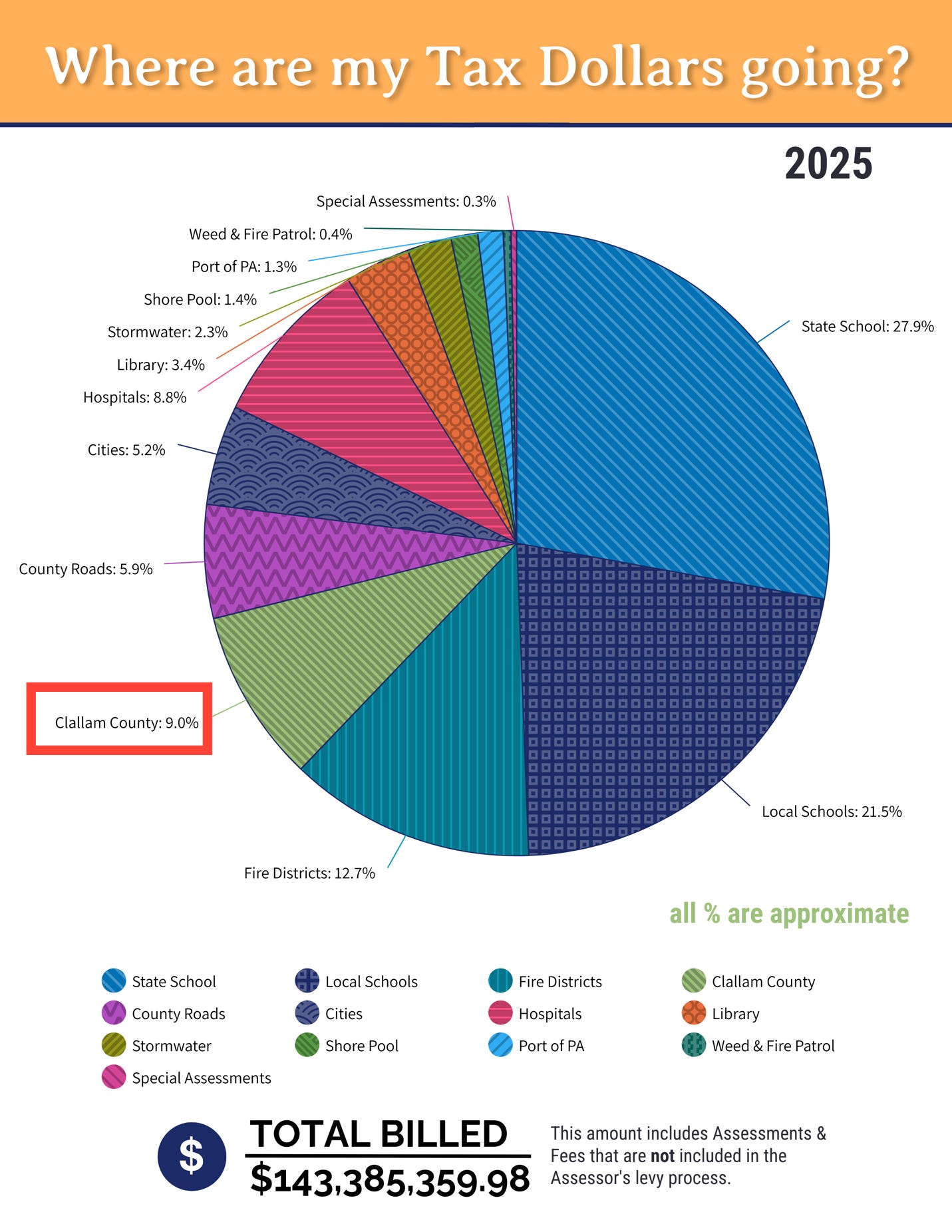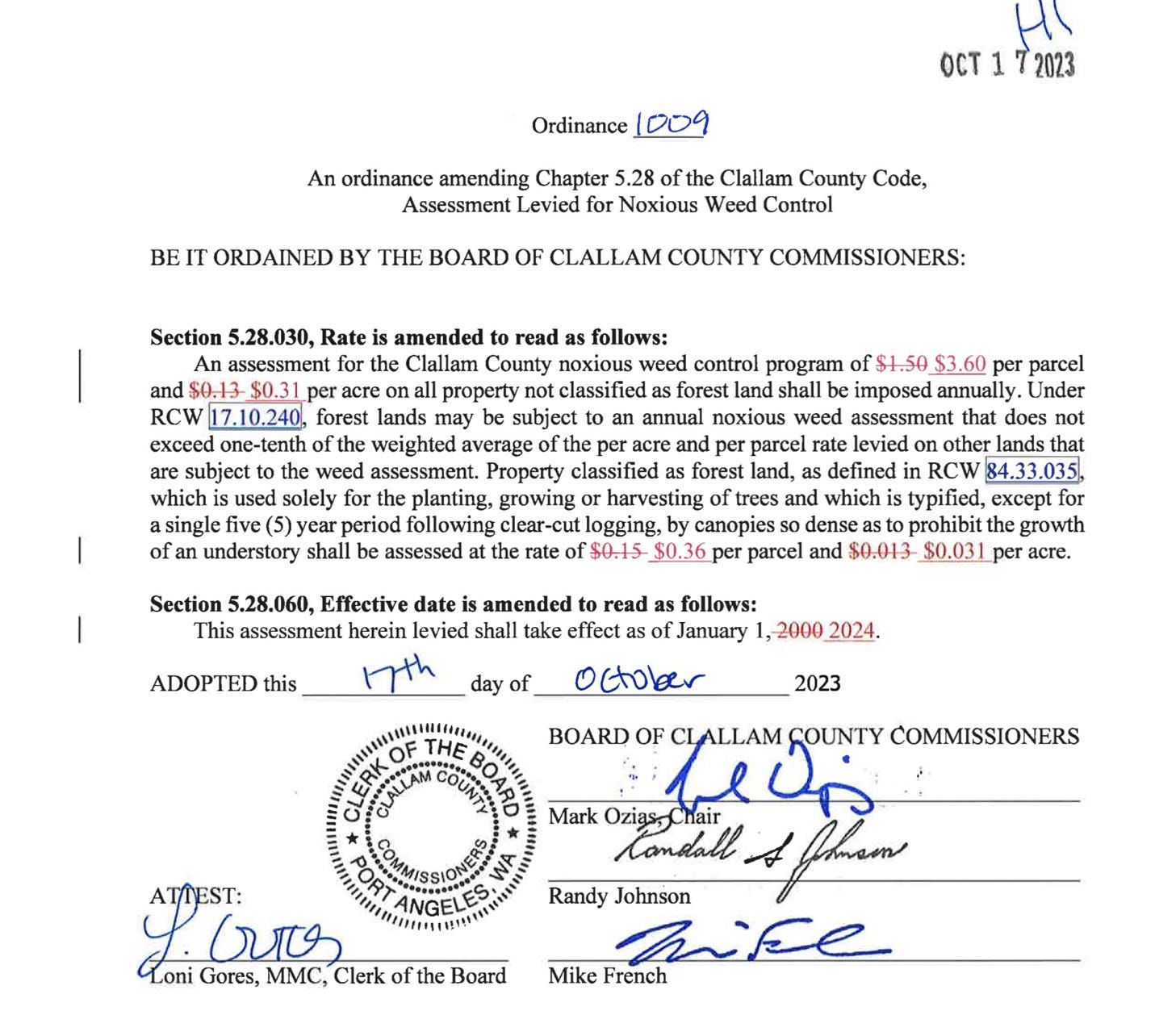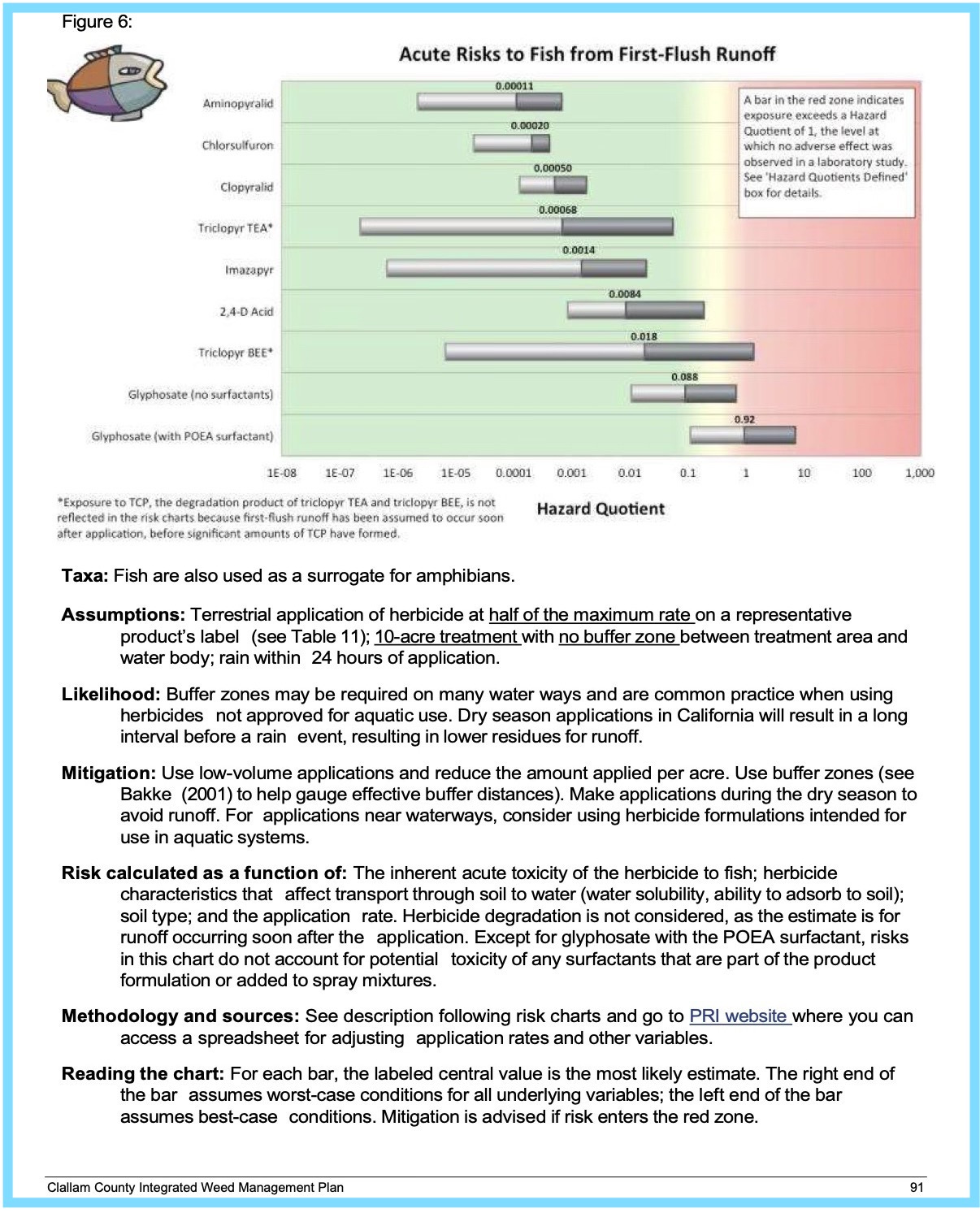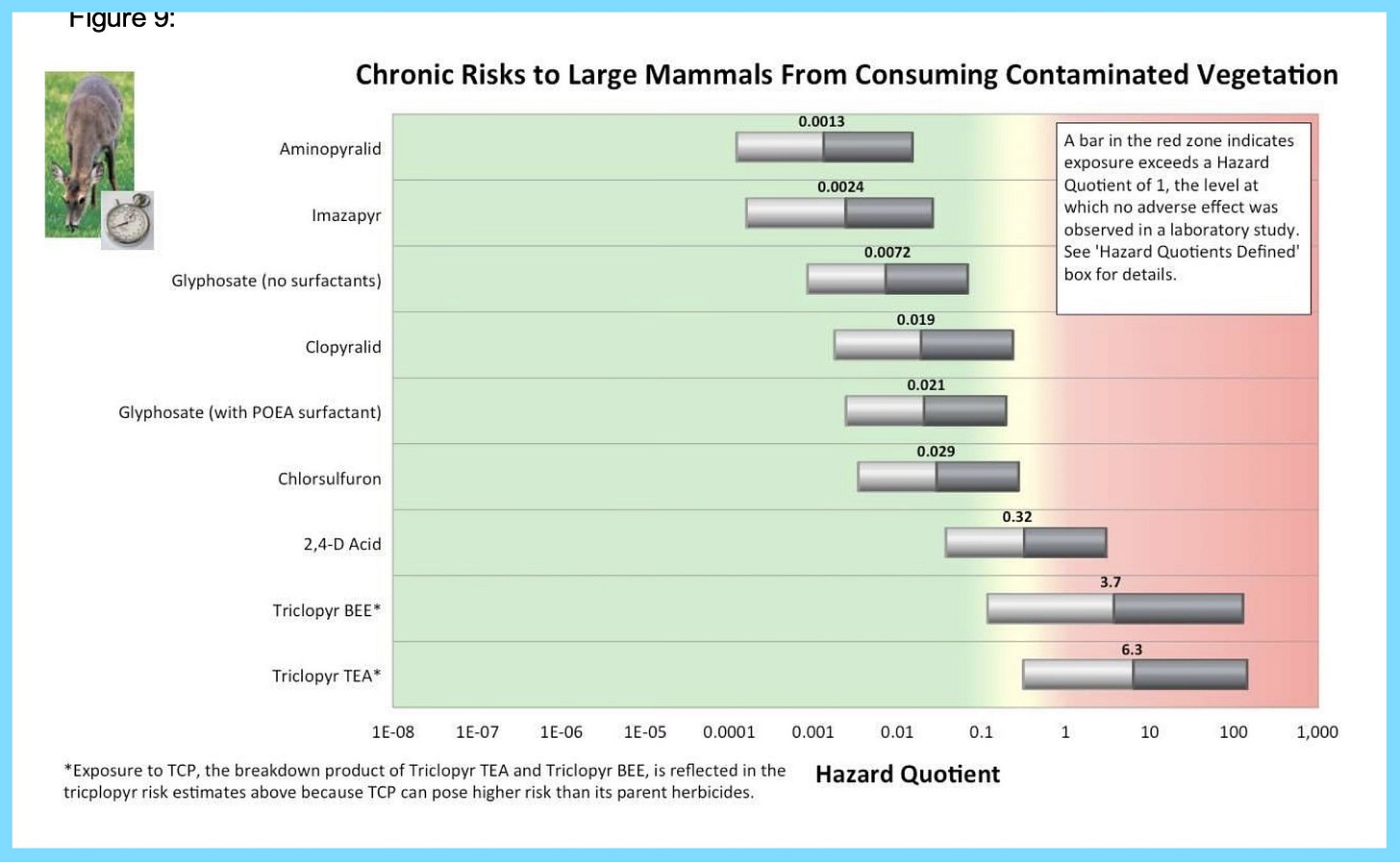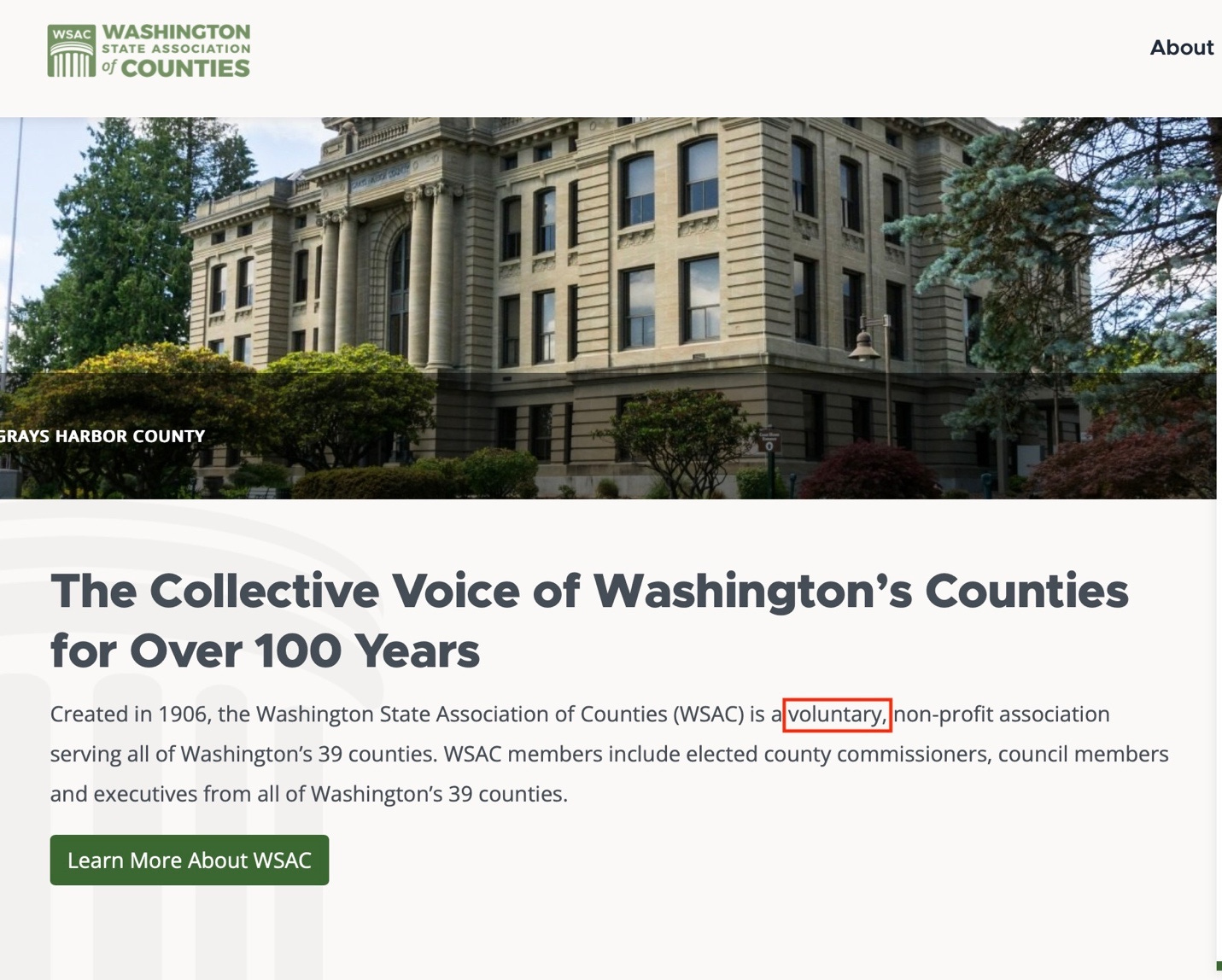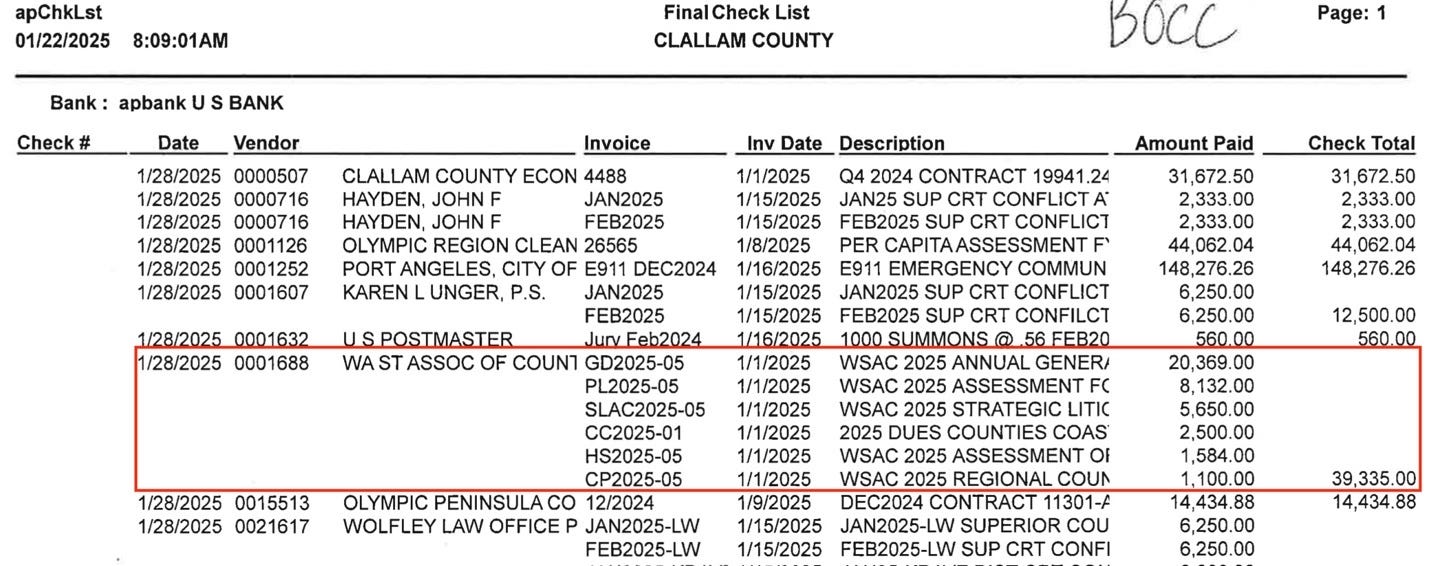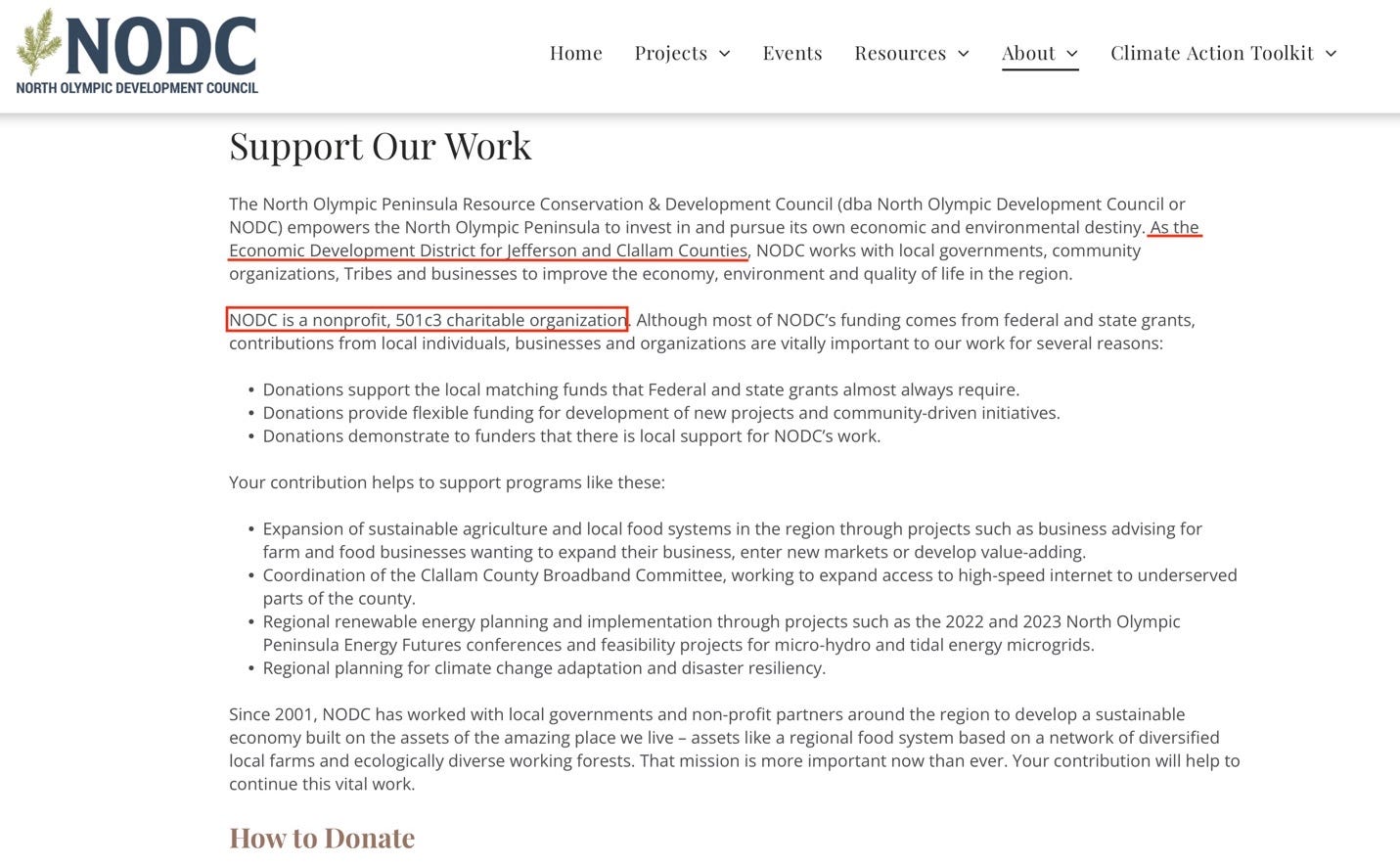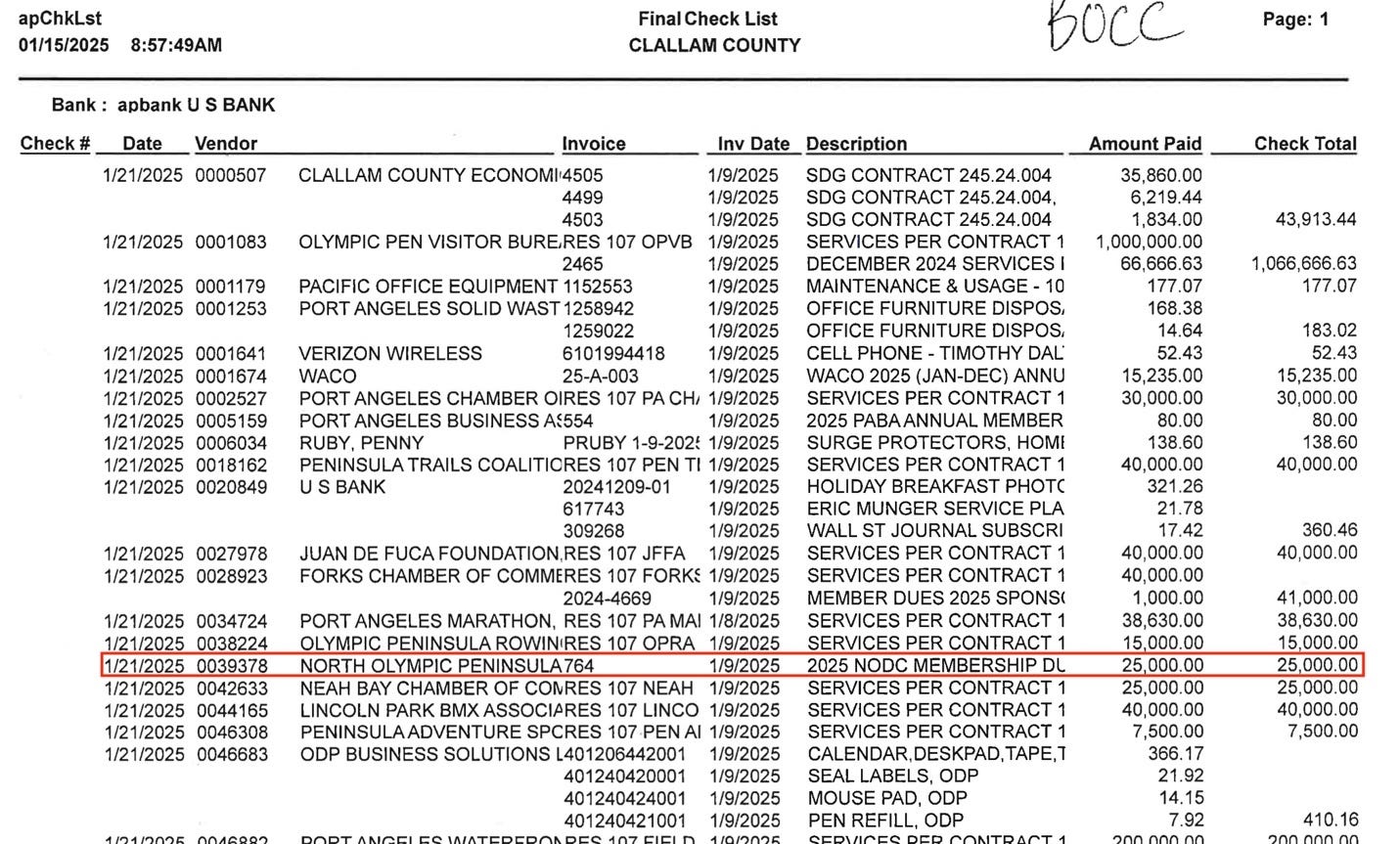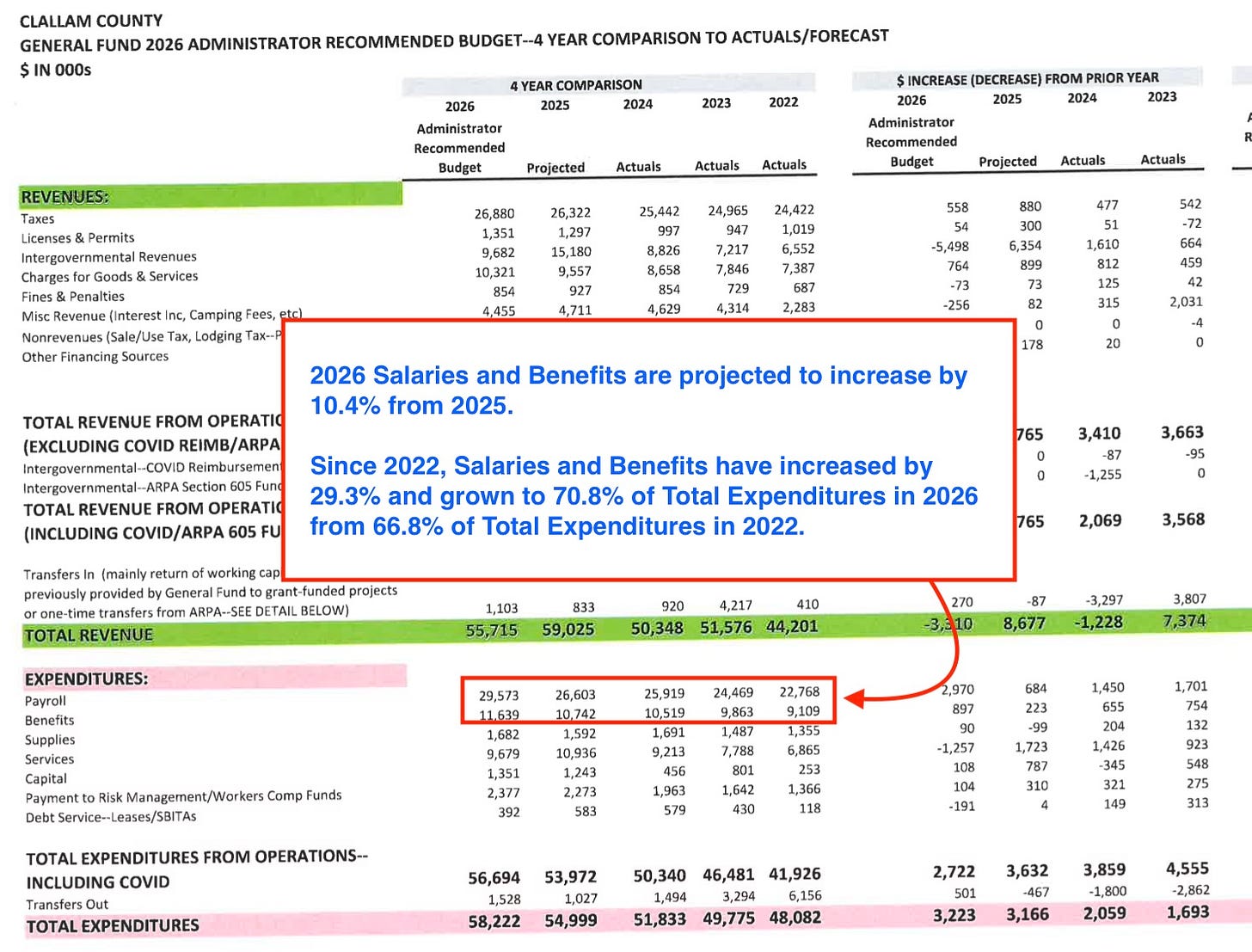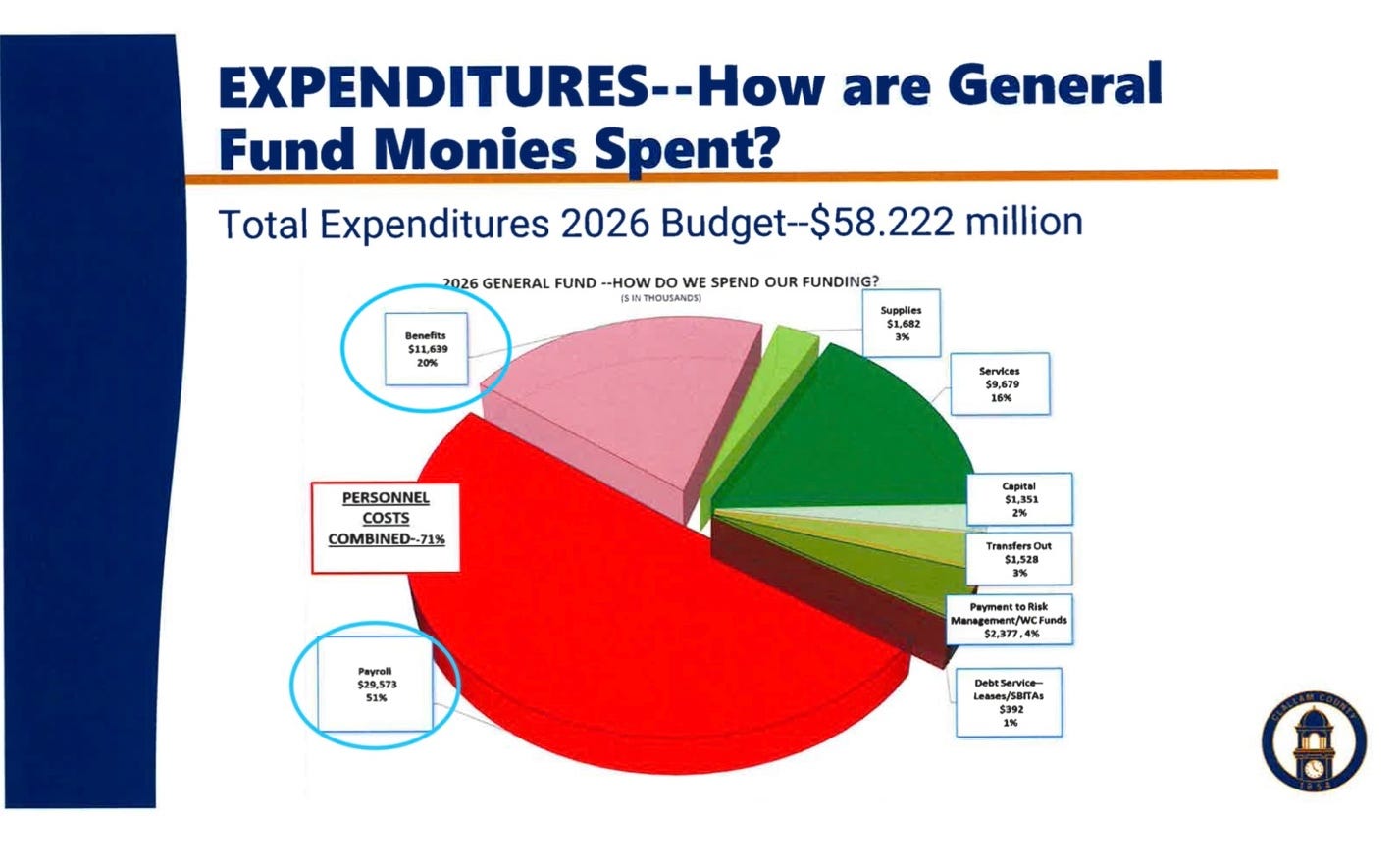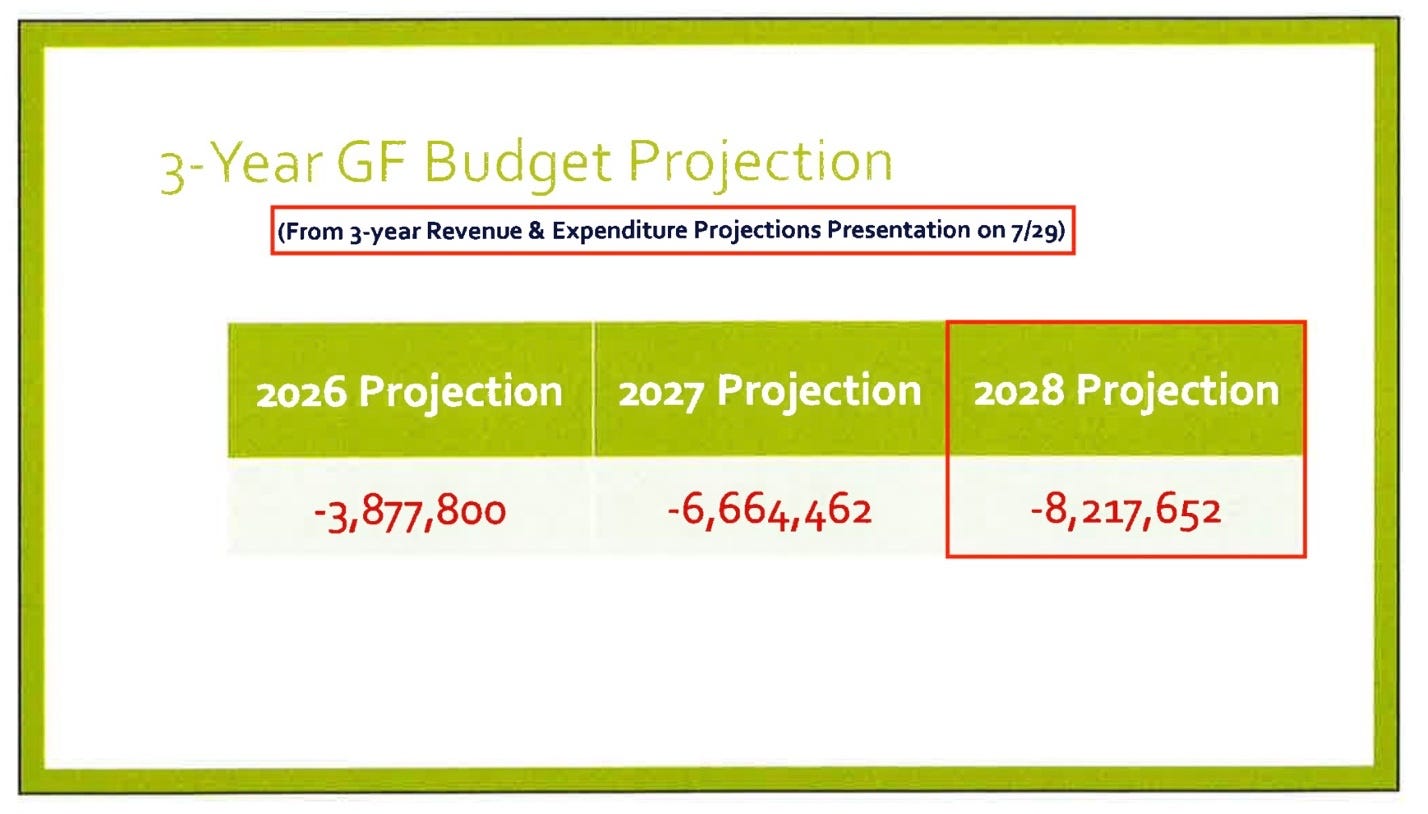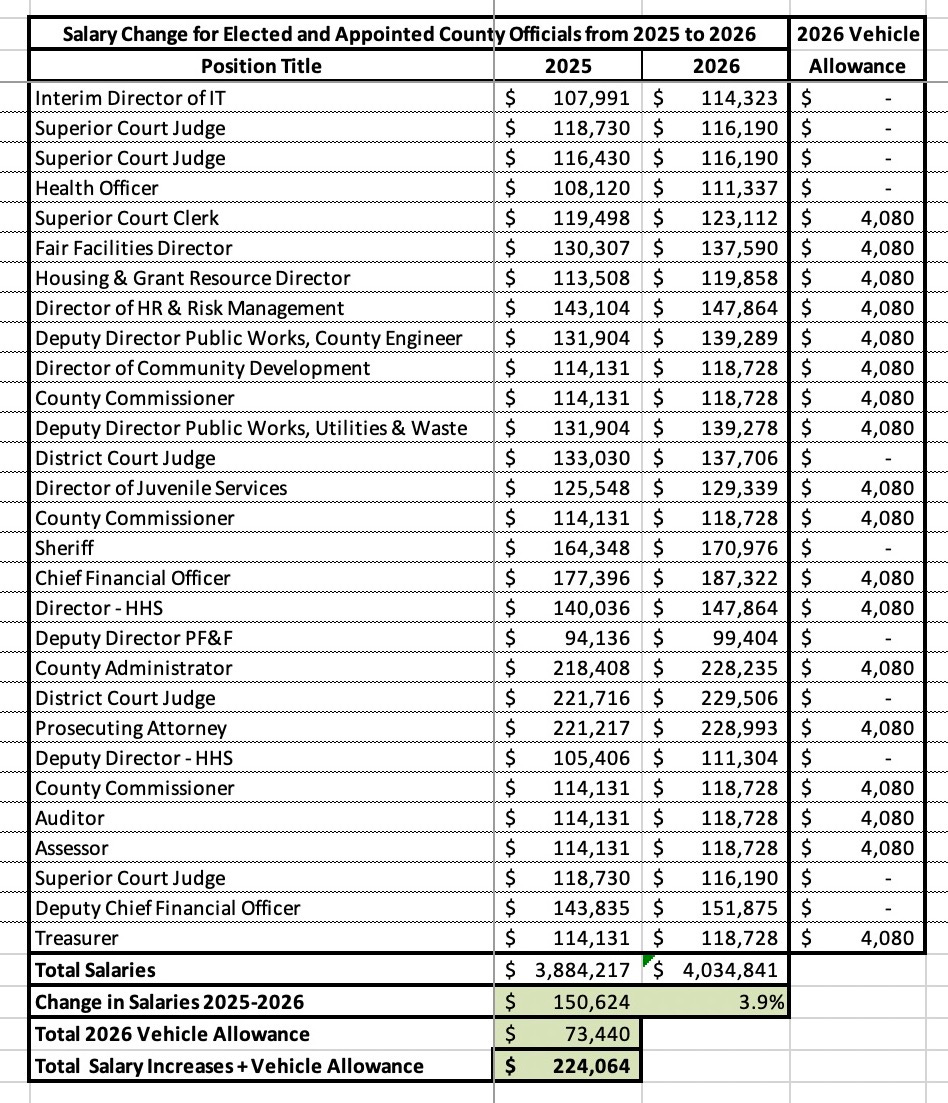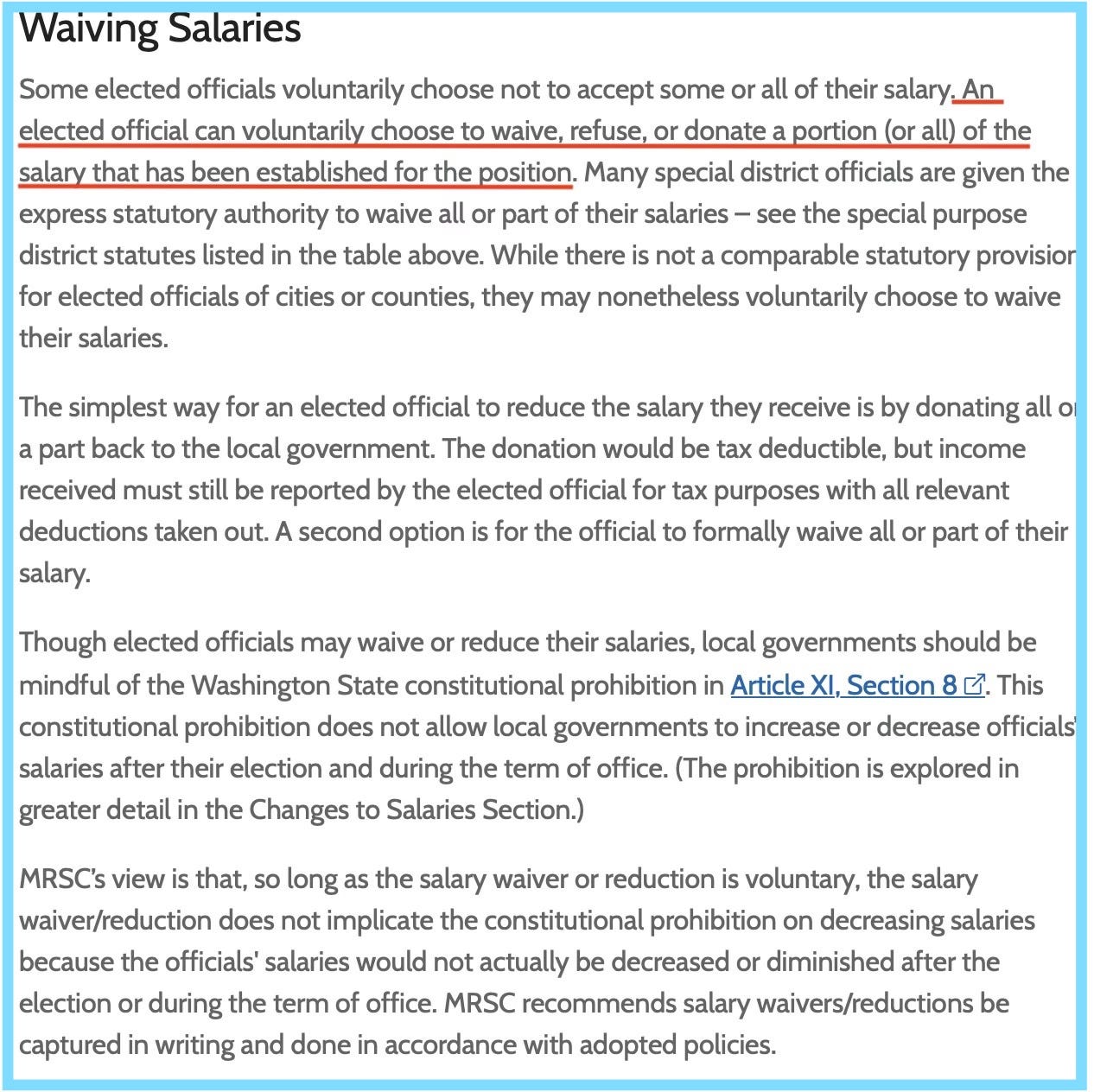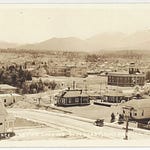Clallam County leaders say they need more of your money to “maintain essential services.” What they don’t mention, according to guest contributor Jake Seegers, are their own raises, car stipends, and voluntary dues they’ve already covered with your tax dollars. While preaching fiscal discipline, commissioners keep expanding payrolls, padding perks, and funding organizations that lobby for higher taxes. Before asking voters for another 30%, maybe they should start by cutting out the most obvious waste.
By Jake Seegers, guest contributor
Commissioners have defended the proposed November levy lid lift by noting that the county’s general fund property tax increases have remained comparatively modest in recent years.
During the October 14th Budget Town Hall in Port Angeles, Commissioner Randy Johnson asserted that while his personal property taxes have risen, the portion tied to the county’s general fund has remained flat since 2021.
But total property taxes in Clallam County have expanded unsustainably—up nearly 58% since 2018. The largest culprits behind these increases are:
State School: up 61.7%
Local School: up 68.4%
Parks: up 109.1%
Fire Districts: up 87.8%
Hospitals: up 173.9% (driven by OMC’s 2025 levy lift)
Even the county’s general fund collections—though growing more slowly than other taxing districts—have still risen nearly 18% over the same period. Today, the general fund accounts for roughly 9% of Clallam County’s total property-tax burden.
But county commissioners have enthusiastically supported tax hike proposals from other government organizations, like school districts and OMC, and they’ve passed a few of their own. But they can’t have it both ways—championing new taxes while insisting taxpayers shoulder another increase because “the county’s share hasn’t grown enough.”
While commissioners claim they’re working to align expenses with revenues, their record shows the opposite.
WA State Auditor’s FIT Tool indicates the following changes from 2018-2024:
Bellevue Consumer Price Index (CPI): +30.4%
County tax revenue (property + sales): +39.3%
County property tax: +18% (about 2.7% per year)
County expenses: +51.6%
Federal & state grant revenue: +125.7%
The data tells the truth - commissioners spend first—and look for revenue later. Let’s look at a few examples of unnecessary costs that commissioners refuse to cut.
Congratulations, We’re Still Spending!
On October 17, 2023, Commissioners French, Johnson, and Ozias unanimously passed Ordinance 1009, raising the Noxious Weed Assessment to $3.60 per parcel and $0.31 per acre (forested parcels pay one-tenth that rate). Federal and tribal lands are exempt.
The increase—passed without a public vote—more than doubled collections from $88,825 to $213,180 annually, beginning in 2024.
Commissioner French praised the hike:
“It would probably behoove us to put something on our calendar every 2–3 years to examine the assessment so we don’t go 20 years without an increase when it is clearly necessary.”
One “necessary” expense in the 2026 Noxious Weeds budget is a $13,343 payment to the Master Gardener program to help “sell” the weed department’s agenda to taxpayers by providing volunteer outreach.
Noxious Weed Control Coordinator, Christina St. James, explained:
“Herbicides is a very emotional topic for a lot of people and it’s not always based on the facts…”
According to the 2025 Clallam County Road Department Integrated Weed Plan, herbicides can be more than just “emotional” for fish and large mammals, with Triclopyr, 2,4-D Acid, and Glyphosate potentially reaching “hazard” levels, depending on concentration, application techniques, and unpredictable weather.
Enter the Master Gardeners, tasked with calming citizen concerns.
Clea Rome from WSU Extension expounded:
“So, the Master gardener’s core role is to help reassure the public in day-to-day interface.”
Commissioner Ozias agreed:
“This is a rare program that actually builds confidence and connection with local government to which has importance that is broader than the function.”
County Engineer Joe Donisi was the lone voice of reason:
“As a core mission—‘absolutely required’—I don’t think it fits that category.”
After failing to actually cut this nonessential expense from the budget, Commissioner French praised the commissioners’ work:
“We just had a respectful knock-down-drag-out about $13,000. I think that’s a positive way to start out budget discussions, frankly.”
Commissioners first imposed—and later increased—the controversial Noxious Weed levy. To soften public opposition, they’ve funded a $13,000 annual public relations campaign promoting herbicide spraying. Now they’re congratulating themselves for merely debating that same $13,000 expense—one they intend to approve regardless.
Budgets aren’t balanced through self-congratulation — they’re balanced by cutting what’s unnecessary.
WSAC: Voluntary Fees for Higher Taxes
Commissioner Ozias serves as Vice President of the Washington State Association of Counties (WSAC), a nonprofit to which county membership is voluntary.
In January 2025, county vouchers show $39,335 in dues and fees paid to WSAC.
Despite promoting itself as a cost-saving resource, WSAC’s 2025-26 legislative priorities include:
Raising the annual property-tax cap without a vote of the people from 1% to 3%.
Increasing the county-road levy cap to 3% and adding a mileage fee for drivers.
In a time of budget strain, commissioners spent $40,000 of taxpayer funds on dues to an organization that lobbies for higher taxes without voter approval.
NODC: Discretionary Dues, Questionable Returns
The North Olympic Development Council (NODC) is the “Economic Development District” for Clallam and Jefferson counties, led by its President Mark Ozias. NODC is a 501(c)(3) nonprofit, charitable organization.
Though membership is optional, commissioners approved $25,000 in dues in January 2025.
As an independent nonprofit, NODC promotes its own values and priorities — it is under no obligation to represent all citizens of Clallam County equally.
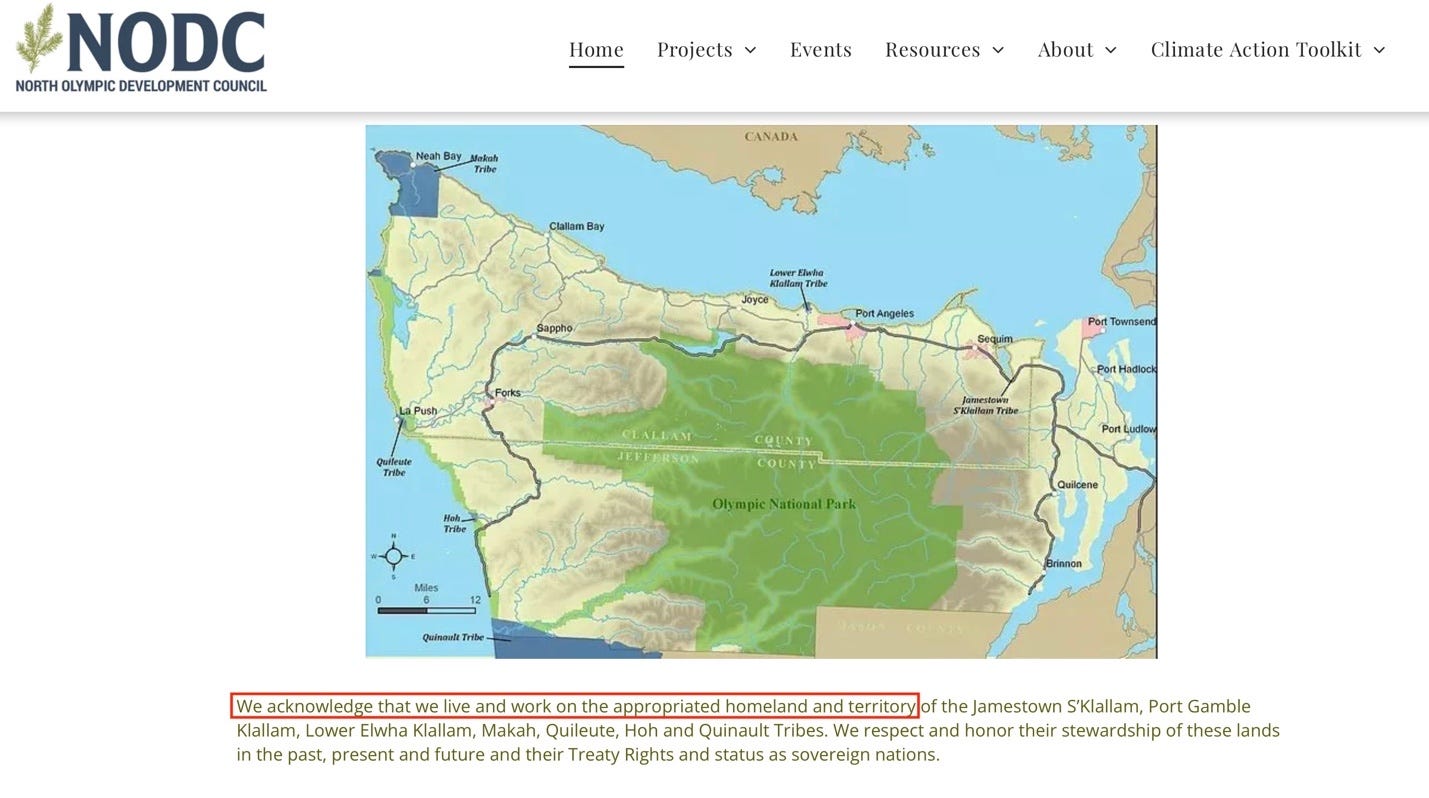
Yet the commissioners, who have taken an oath to represent every resident fairly and impartially, continue to use public funds to support an organization that clearly does not.
One of NODC’s projects secured a $22 million broadband grant, contracting Astound to connect 1,500 homes—at about $15,000 per connection. The funds covered installation, but homeowners are responsible for monthly service costs.
For comparison, $22 million could fund eight years of Starlink service for the same number of households.
Pay Raises in a Crisis
In 2026 alone, county salaries and benefits are projected to jump 10.4%, a total increase of 29.3% since 2022—double the rate of inflation.
Labor costs will consume over 71% of the county’s budget in 2026, compared with 67% in 2022.
For a county projected to face an $8 million deficit in 2028, outsized payroll growth is only making the problem worse.
During the 2008–2009 financial crisis, Bank of America CEO Ken Lewis and other top executives led by example, asking the board to withhold their bonuses — a significant sacrifice in an industry where bonuses often make up the bulk of compensation.
“It is only fair,” Lewis said, “that our most senior executives, who have been rewarded in past years when our company and stock price performed, should now share in the pain as performance has lagged.”
That’s what leadership looks like in hard times — sharing the burden, not passing it on.
In stark contrast, county commissioners — along with other elected and appointed officials — are on track for a pay raise in 2026, even as they ask voters to approve a 30% property tax increase to fund so-called “essential services.”
Many of them will also continue to collect monthly vehicle allowances.
Forgoing those raises and vehicle perks would save roughly $224,000 in 2026 alone — enough to fund two of the three positions the commissioners plan to eliminate.
At the October 22 Budget Town Hall in Sequim, Commissioner Mike French acknowledged that elected officials could voluntarily forgo their scheduled pay increases. He added that he is exploring a proposal to lower the benchmark used to calculate future salaries but noted that Article XI, Section 8 of the Washington State Constitution prohibits changing an elected official’s pay during their current term — meaning any adjustment would not take effect until 2027.
However, according to the Municipal Research and Services Center (MRSC.org), elected officials may voluntarily waive, refuse, or donate all or part of the salary established for their position.
Commissioner French also stated that he has proposed eliminating the county’s vehicle allowance, but has faced significant resistance.
Notably, Commissioner French did not address the pay increases scheduled for appointed officials - like the Health Officer, County Administrator, and CFO - whose compensation is set by contract rather than statute.
The question remains: should citizens be asked to tighten their belts during a budget crisis when their leaders won’t do the same?
The Choice
In this year’s Voter’s Pamphlet, the “Argument For” the county’s levy lid lift was written by Commissioner Randy Johnson and endorsed by Assessor Pam Rushton and Sheriff Brian King. Were there no citizens—outside of those on taxpayer-funded payroll—willing to make the case to voters?
Citizen Ed Bowen authored the rebuttal.
Commissioner Johnson recently imposed the Clallam Conservation District’s $5 parcel fee on property owners - funding a $2 million obligation that he created —without a vote of the people. Assessor Rushton, with enthusiastic commissioner support, has expanded property-owner surveillance to boost tax revenues.
Meanwhile, Sheriff King struggles to secure fair pay and adequate staffing under the constraints imposed by three commissioners with a spending problem.
Mr. Bowen may be the only true representative of Clallam County citizens.
So how will you vote?
Will you side with the leaders who created a budget crisis while raising their own pay, or with a fellow citizen who is demanding financial stewardship?
This isn’t a vote against services — it’s a vote for accountability, discipline, and respect for the people who pay the bills.
Here’s what you can do:
Vote to “reject” the county’s levy lid lift.
Tell your commissioners to return to a balanced budget by prioritizing “needs” before “wants.”
All three county commissioners can be reached by emailing the Clerk of the Board at loni.gores@clallamcountywa.gov.
Last Sunday, Jake Seegers asked readers if Clallam County should use surveillance technology like EagleView. Of 186 votes:
80% said, “No, my home is my sanctuary”
6% said, “Only with advanced warning”
2% said, “Yes, it makes me feel safe”
11% said, “No, I sunbathe in the nude”





